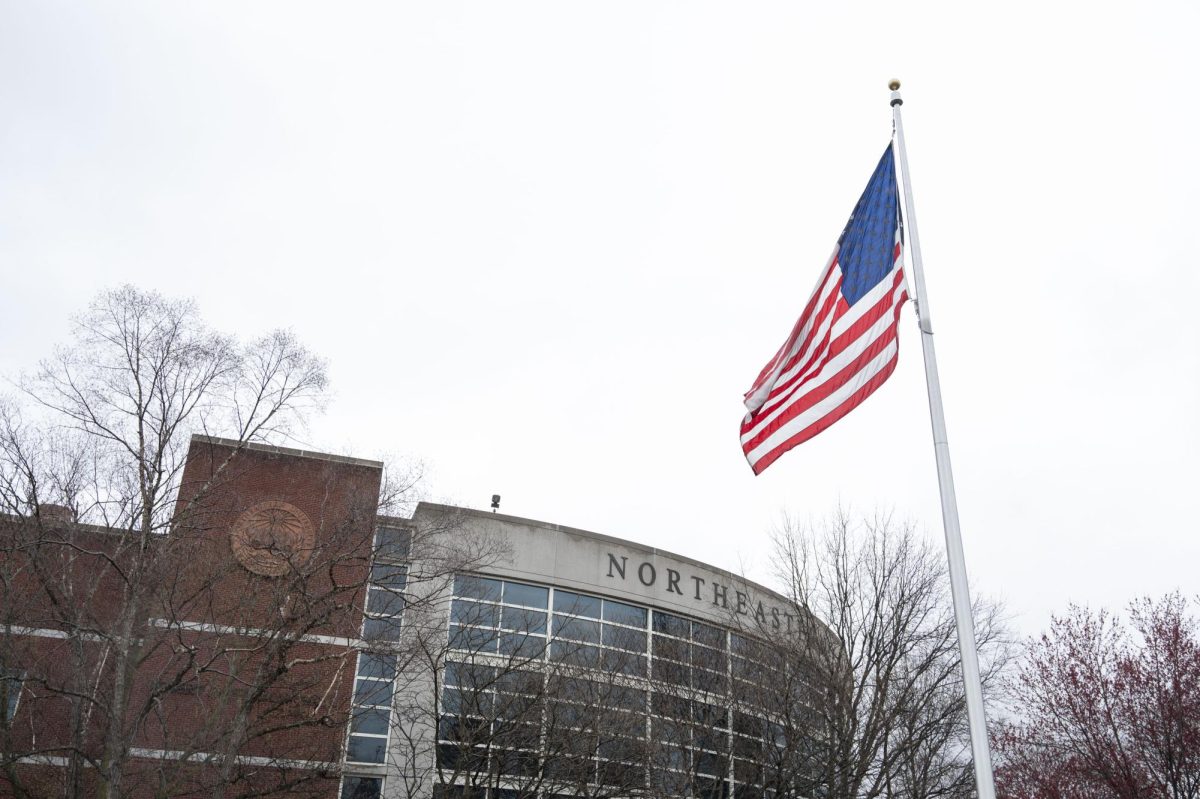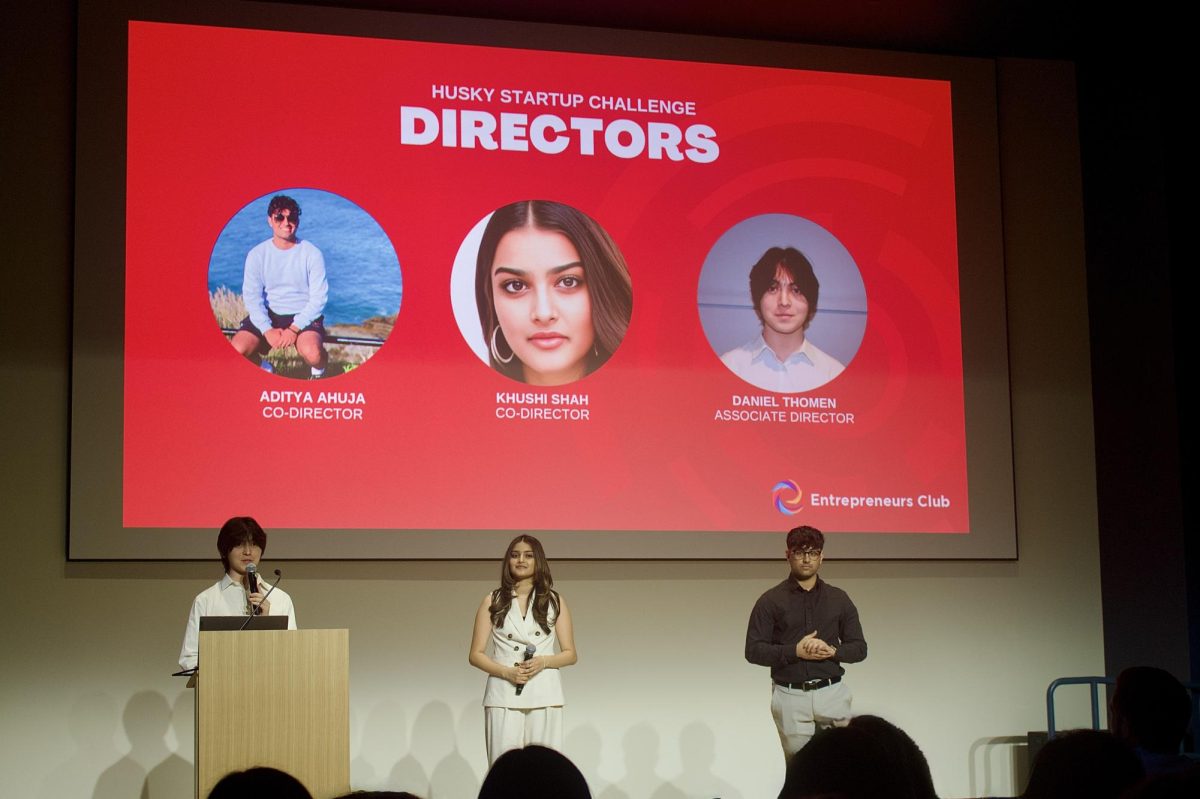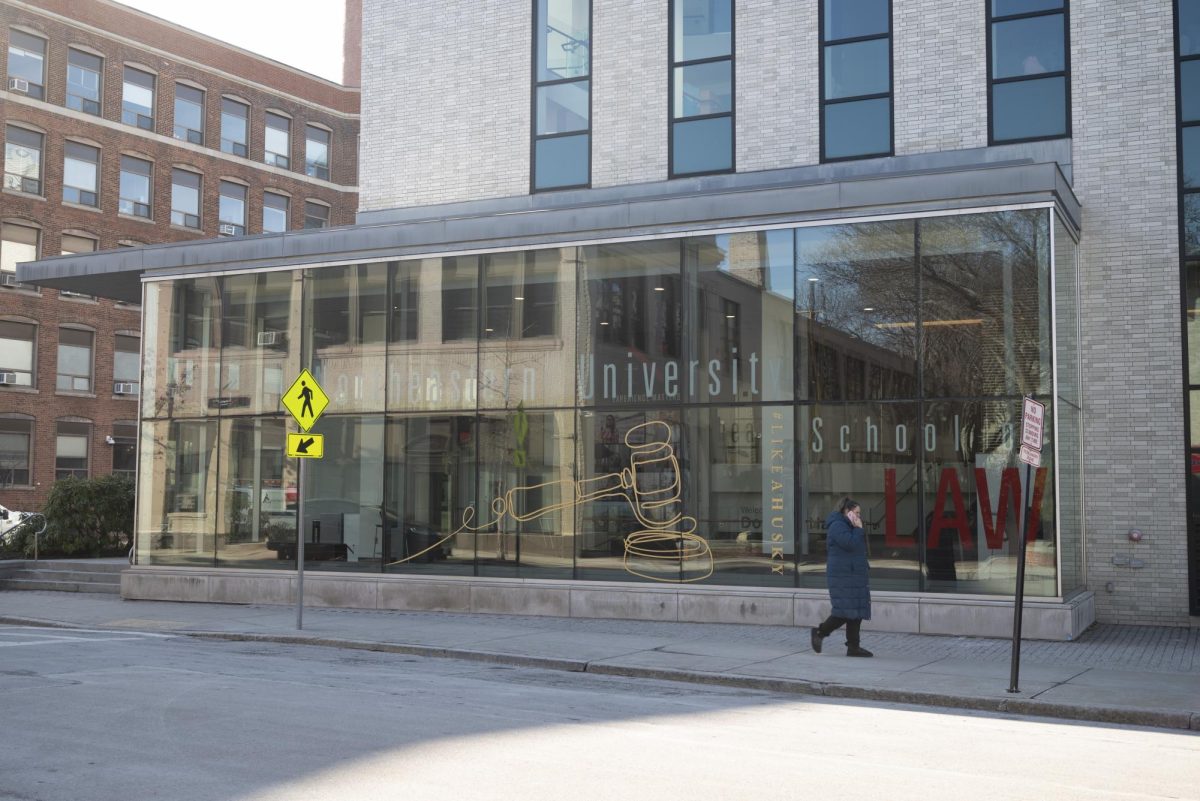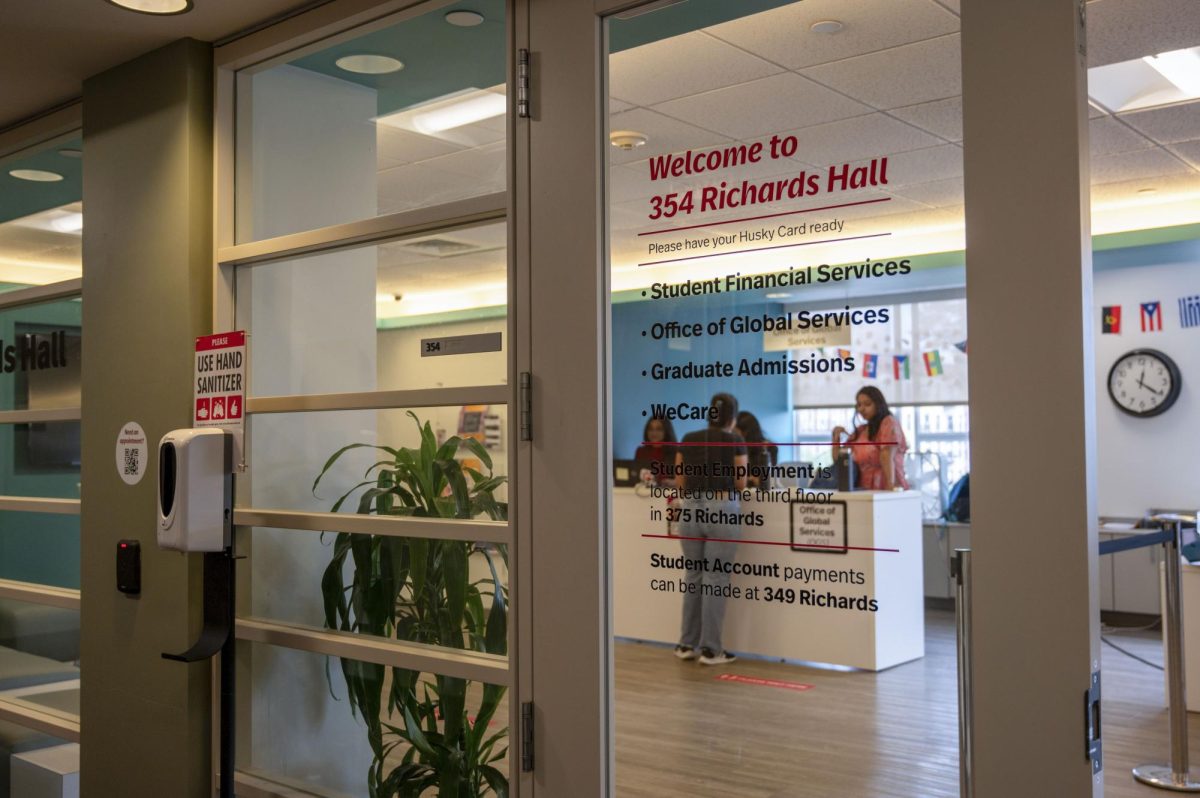A time-honored Matthews Arena chant died this week: Bruce must go!
The reason is simple. Bruce went.
I don’t know who will succeed Bruce Crowder as the next coach of the Northeastern men’s hockey team, but I think I have an idea of what the newest cheer to hit Huntington Avenue will be: (Insert name here) must go!
With the Athletic Department’s statement that it will not renew the contract of the man who spent nine years on Huntington Avenue, a sad reality is upon us. Northeastern will never be able to sustain a level of significant success. It is, barring a miracle, not possible.
Before I explain why this is, allow me to clarify three things:
1) On a visceral level, Crowder didn’t deserve to be offered another contract.
2) This does not mean the new guy will have any more success than the former coach did.
3) This also doesn’t mean you can blame the Athletic Department for trying.
It’s probably no secret why Crowder was “let go” (fired). His career record of 120-170-36 was hardly impressive, especially when coupled with the fact that the former Boston Bruin and University of New Hampshire star was at the helm for just two winning seasons. In fact, four of Crowder’s nine teams finished dead last in Hockey East play.
“On the one hand, you understand why,” said Tim Judy, a senior defenseman on this year’s team. “Three losing seasons in a row, two of which we didn’t make the playoffs. But, he’s still a great coach and all the blame doesn’t lie on him.”
Still, it’s curious that the Athletic Department decided “it needed a change” after this season, when the team finished three games under .500 despite playing the second toughest schedule in the entire country. Does it not seem as though Crowder was canned as a result of the two prior campaigns, where the team finished last? Was there anything he could’ve done to save his job this year?
“Obviously, winning the NCAA tournament and the Beanpot would have helped,” Crowder joked Monday afternoon.
I understand that major collegiate athletics are a business, and part of the reason Crowder was kept last year likely had to do with the monetary forfeit the Athletic Department would have incurred by firing him. That doesn’t mean I have to respect it.
“It almost seems like we could’ve won Hockey East and they still would have done it to him,” said sophomore defenseman Steve Birnstill. “I just don’t think that’s fair.”
Fair or not, it’s now a moot point. It’s time to move on for Northeastern hockey. It’s time to look to the future, bleak as it may be.
Two reasons long-term winning is impossible:
* Recruiting against powers like Boston University and Boston College: After a November loss to BC, Crowder made an important distinction — teams like BU and BC don’t recruit, they pick.
“They select players,” Crowder said. “There’s no secret there. They get the best of the bunch. They go in and say, ‘We’ll take you and you there.’ They might have a little trouble with some teams out west, but for the most part in New England, that’s one of the things — there’s teams that recruit and teams that select the best kids. They’re very fortunate that they get to select, and they just have to hope that the kids they’re selecting turn out to be good kids.
“That’s easy. What we’ve got to do is find kids who are maybe a notch below who can elevate themselves to that level.”
This isn’t to say Northeastern doesn’t have advantages.
“It makes it tougher, but you’ll always be able to recruit for Northeastern just because of the location of it,” Birnstill said. “I was talking to Keni Gibson about it the other day, as soon as we came here on our visit we knew we didn’t wanna go anywhere else. So, I think a big thing is just getting the kids to come and see Northeastern, and once they see it I don’t see how you could turn it down.”
Athletic Director Dave O’Brien also makes this point, but includes a rather flawed argument about the Northeastern co-op.
“This is a terrific institution that has a signature co-op program where young people can come and get exposure to the real world unlike any other university, virtually in the country. I think we can’t discount that as being a very effective way to offset whatever issues there are.”
Co-op as a recruiting tool? Absolutely — for the teams like track or field hockey. Athletes coming to a top Division I hockey program aren’t playing and going to school to get on-the-job training; their “on-the-job training” comes every Friday and Saturday night at Matthews Arena.
For example, when the 2001-02 season ended, Jim Fahey, Leon Hayward and Chris Lynch all signed minor league deals — jobs that counted as their “co-op.”
* Northeastern tuition: O’Brien also downplayed the fact that Northeastern tuition levels are more than twice that of fellow Hockey East schools like the University of Massachusetts and the University of Massachusetts at Lowell.
“Everybody at this level of hockey competes with 18 scholarships,” he said. “I really don’t think that the descrepancy between public tuitons and private tuitions is as much a factor as some people think.
“I guess I would point out that the issue of private verse public, in terms of cost, affects all of our teams. I don’t think it affects any one team more than the other teams.”
I disagree. Northeastern hockey is the only team that competes consistently against the top level of play in its respective sport (outside of field hockey and track, teams where playing professionaly isn’t an option and co-op can be an immense tool). When playing at this high a level, team depth is of the utmost importance and much harder to come by.
And it’s the one thing missing from Husky hockey.
At this year’s Hockey East Banquet, Northeastern had two members on the All-Conference team (goalie Keni Gibson and center Jason Guerriero), it had one on the second-team (winger Mike Morris) and possessed the Defensive Defenseman of the Year (Judy). Recruiting top-level players was never the problem for Crowder. He got them here.
It’s no secret that money plays a factor. Taking a roster with 27 players (such as this season), a third of the team would be footing the entirety of NU’s $36,946 bill. Compare that to conference foes like UMass ($15,795) and UMass-Lowell ($13,902).
So, O’Brien feels it’s not a factor. Guess who does?
The ones actually paying that bill.
“The tuition is definitely a big thing,” Birnstill said. “Not everyone can be on scholarship. When you’re going here for $40,000 a year as opposed to UConn for $14,000 a year, it’s a big difference for the family.”
There’s an easy solution to this issue, though.
Just have the hockey tradition of a Boston College. Or become a public school.
Oops.
So, the search is on for the next sacrificial lamb.
Gene Reilly and Bruce Racine, both assistant coaches on this year’s team, will be considered for the post, O’Brien said.
“I think what we’re looking for is somebody who’s got an awful lot of fire in their belly, who can demonstrate through their track record that they’ve been an outstanding recruiter and somebody who I think understands the uniqueness of Northeastern and the Boston area that we have to sell.”
So … Bruce Crowder. Or, Bruce Crowder circa 1996, when he was newly crowned as the National Coach of the Year for his efforts at UMass-Lowell (where he was a two-time HE Coach of the Year in five seasons) and hired away to Huntington Avenue (where he earned HE Coach of the Year honors once).
Reilly, Racine or whomever, you just hope they don’t end up as the subject of Northeastern’s newest taunt.
Problem is, you know better.
– Jack Weiland may be reached at sports@nu-news.com.









